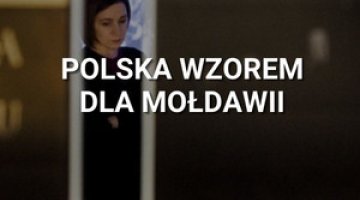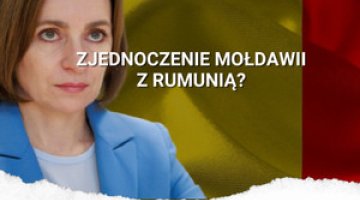The EU–Moldova summit: pre-election support for pro-European forces
On 4 July, the first EU–Moldova summit was held in Chișinău. It was attended by the President of the European Commission, Ursula von der Leyen, the President of the European Council, António Costa, and representatives of the Moldovan authorities, led by President Maia Sandu. Von der Leyen emphasised that, in the European Commission’s view, Chișinău meets the conditions necessary to open the first negotiation cluster (the so-called fundamentals), and expressed hope that the remaining clusters would be opened ‘as soon as possible’.
EU representatives also announced the launch of the first tranche of financial aid for Moldova, worth €270 million. These funds are drawn from the Moldova Growth Plan (MGP) – a €1.9 billion facility created this year to support the country’s development (including economic recovery and infrastructure expansion) and to assist the government in implementing reforms stemming from the ongoing accession process (see ‘Moldova: an unprecedented financial assistance package from the EU’). It was also announced that, from 1 January 2026, roaming charges will be abolished for Moldovans (and Ukrainians) staying in the EU. Additionally, Moldova will join the SEPA zone (Single Euro Payments Area) on 1 October this year, significantly reducing banking transaction costs between Moldova and EU member states.
The summit in Chișinău confirmed the European Commission’s support for Moldova’s European integration. In light of the parliamentary election scheduled for 28 September, it was intended to bolster the ruling pro-Western Party of Action and Solidarity (PAS). However, it appears that the promises made during the summit are unlikely to have a significant impact on public sentiment.
Commentary
- The summit holds particular significance for the Party of Action and Solidarity (PAS), which is preparing for the parliamentary election this autumn. The party hopes once again to secure an outright majority, as it did in 2021, but recent polls suggest this will prove difficult. Polls conducted in May and June show PAS with around 40% support among voters in Moldova who are determined to vote. While the party is also expected to receive substantial backing from the diaspora, estimated at approximately 1 million people, compared with Moldova’s 2.4 million residents, this may still be insufficient to form a single-party government. Consequently, PAS may be forced to seek a coalition partner in order to remain in power. However, none of the three parties almost certain to enter parliament currently appears genuinely committed to continuing Moldova’s European integration. The Party of Socialists (PSRM) and the Victorie/Pobeda bloc – controlled by fugitive oligarch Ilan Șor, who resides in Moscow – are openly pro-Russian. Meanwhile, the Alternativa bloc, although formally presenting itself as a centrist and pro-European force, is not regarded as a credible partner for PAS due to its leaders’ ties with Moscow.
- The promises made by the EU during the summit are unlikely to significantly influence public sentiment. This is because the removal of roaming charges and Moldova’s inclusion in the SEPA zone will take effect only after the parliamentary election. In the coming months, Moldovan citizens are also unlikely to feel the effects of the first disbursement of funds from the MGP, and the mere announcement of its release will carry little weight for them. Paradoxically, the opposition may even use this announcement to criticise the government for alleged ‘misappropriation’. This is because, for many years, the authorities have informed the public about successive tranches of EU funding, but have failed to clearly communicate the specific projects and objectives for which these funds are ultimately used.
- The first tranche of financial aid is of significant importance for Moldova’s economy, which is sliding into recession. In 2023, the country’s GDP grew by 1.2%, while in 2024 it increased by just 0.1%. This negative trend has continued into the current year – during the first quarter, the economy contracted by 1.2%, marking the third consecutive quarter of negative growth. Exports are also declining noticeably: by 6.5% in 2023 and by 12% in 2024. The economic slowdown, combined with a sharp rise in prices (with inflation peaking at 35% in October 2022), has lowered the standard of living for Moldovan citizens. In 2024, absolute poverty (defined as living on approximately €176 or less per month) affected 33.6% of the population, up from 24.5% in 2021. The funds provided through the MGP are also crucial in light of the United States’ suspension of development assistance under USAID, which took effect on 24 January.
- Despite the European Commission’s declarations, the opening of the first negotiating cluster is currently impossible. This is due to Hungary’s position, as it does not support such a step in the case of Ukraine (see ‘Cluster, open up! Ukraine’s opportunities and risks on the road to the EU’). This also blocks Moldova’s progress, as both countries are treated as part of a so-called single package. Although Chișinău could push for decoupling, it chooses not to, fearing that such a move could harm its relations with Kyiv. At the time of Moldova’s 2022 application for candidate status, Ukraine strongly criticised PAS for allegedly seeking to exploit the tragedy of the Russian invasion to advance its own political goals.
- The prospect of decoupling Ukraine and Moldova in the EU accession process is met with strong opposition in Kyiv. This was clearly expressed by President Volodymyr Zelensky on 11 June, during the Ukraine–Southeast Europe Summit in Odesa. Ukrainians are concerned that yielding to Hungary’s blackmail, and the EU agreeing to separate the two countries, would push Ukraine to the margins of integration without a clear roadmap for the next steps. They emphasise that such a decision could undermine trust in the European Union and exacerbate the sense of abandonment by partners, which, in turn, could negatively affect the morale of those fighting on the front line. Currently, around 80% of Ukrainians support EU membership.





